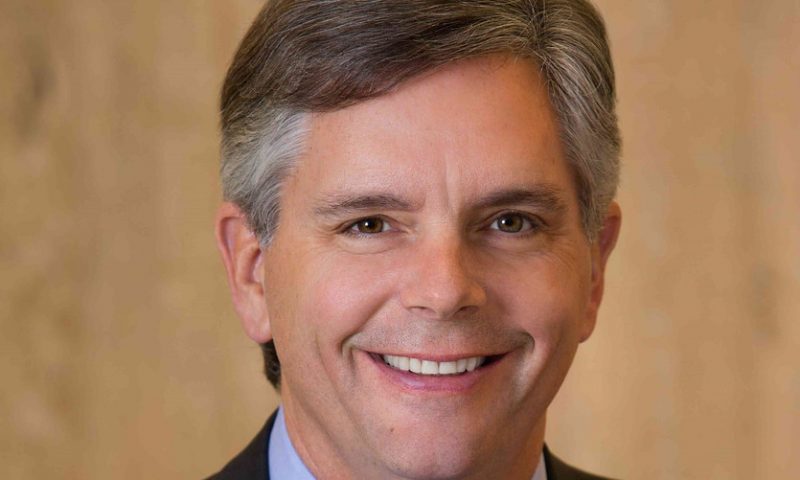The General Electric CEO buys the company’s shares to reassure investors
Twenty-four million bucks ain’t hay.
Not even for a highly paid honcho who made $15 million and change last year.
But that’s about how much of his own money that General Electric GE, +1.73% Chief Executive Officer Larry Culp has riding on his company’s stock — and how much he’s wagering that Harry Markopolos, the famous fraud hunter, is wrong.
Culp and GE find themselves in a brutal smackdown with Markopolos, the financial gumshoe who called out Bernie Madoff’s fraud years before it broke.
Markopolos last week called GE a “fraud” and “the next Enron,” and said it is “one recession away from Chapter 11.”
GE’s stock plunged as Markopolos published his 175-page analysis, but it has since recovered most of the losses.
GE is furiously denying the allegations, and issued a new statement Monday defending its accounts. “[W]e operate with absolute integrity and stand behind our financial reporting,” spokesman Steven Winoker said.
We shall see. But this is what the stock market is all about. Sooner or later, the truth will out.
Sending a signal
Culp bought 331,684 shares at $9.04 and 252,200 at $7.93 last week.
Granted, he bought some of them before Markopolos published his critique. But buying the stock sends a signal about where he thinks it’s going.
Culp now owns 1.1 million GE shares, valued at about $10 million. It may not sound a lot for a top boss. But he only joined the company last year. And the company’s accounts reveal he has another $13.7 million in “performance stock units” and “restricted stock units” tied to GE’s stock price performance.
Total amount Culp now has riding on GE stock: Nearly $24 million.
Meanwhile, some are questioning Markopolos’ motives.
After all, say critics, he’s working on behalf of a hedge fund and will stand to make profits from any slump in GE’s stock. He won’t name the fund.
‘Bear raiders’
So-called “bear raiders” seek to profit by driving down a stock price. They typically operate by borrowing stock in a company and selling it, expecting to buy it back later at a lower price once the stock has fallen.
Almost nobody on Wall Street likes bear raiders. They always make an easy target. Optimism, not pessimism, is considered as American as apple pie.
The arguments against Markopolos don’t hold much water. Why shouldn’t he get paid for his work? It takes a lot of experience and diligence to produce a 175-page detailed study of a major corporation’s accounts. If he’s right about GE, he should make money from it.
The internet is full of people who get paid for their own work, and then expect everyone else to work for free.
What if he’s spreading false rumors, say critics? Well, yes. It’s always a risk on markets. But in this case it seems unlikely because it would be very unwise. It would destroy Markopolos’ reputation if, and when, it came out. And it would put him at risk of civil and potentially criminal sanctions. Spreading false information to manipulate a stock for profit is against the law.
“To the extent that you knowingly put out false information to distort the trade in shares to your own benefit, that could violate provisions of the 1934 Securities Exchange Act, and potentially violate criminal laws,” says veteran securities lawyer Ernest Stern, a partner at Culhane Meadows law firm in Atlanta. “You could be pursued by the Securities and Exchange Commission and the Department of Justice,” he adds.
World of hurt
Catching market manipulators is “difficult (but) not impossible,” says corporate lawyer Braden Perry, a partner at Kennyhertz Perry in Kansas City and a former prosecutor for the U.S. Commodities Futures Trading Commission, the regulator that oversees the commodities markets. And he says one of the biggest challenges in such cases is proving in court that the accused moved the stock price. In the case of Markopolos and GE last week, most observers would agree, that would be easy.
Anyway, investigations are “invasive and intrusive” for the accused, Perry says. In other words: Miscreants may be entering a world of hurt.
Meanwhile, if it’s OK to seek to profit from a rising stock price, why is it wrong to seek to profit from a falling one? Markets are supposed to reveal or “discover” the correct value of a security. Stocks can be overvalued or undervalued. Surely we should welcome anything that tries to move them toward the equilibrium price.
To hear the critics of Markopolos and other bears, you’d think the major risk to U.S. securities markets today is that stock prices are too low.
In the past 20 years, we’ve seen two massive stock market bubbles inflate and then collapse, leaving terrible financial damage. You could argue we need more and better bears questioning stock prices during the bubbles. Overvalued stocks, not undervalued stocks, have caused the most damage in recent history.
Is Markopolos right about GE? Only time will tell. Yes, he was correct about Madoff. But we don’t know what other calls he made. And if he was right all the time, he wouldn’t be advising a hedge fund today. He’d be the hedge fund.

